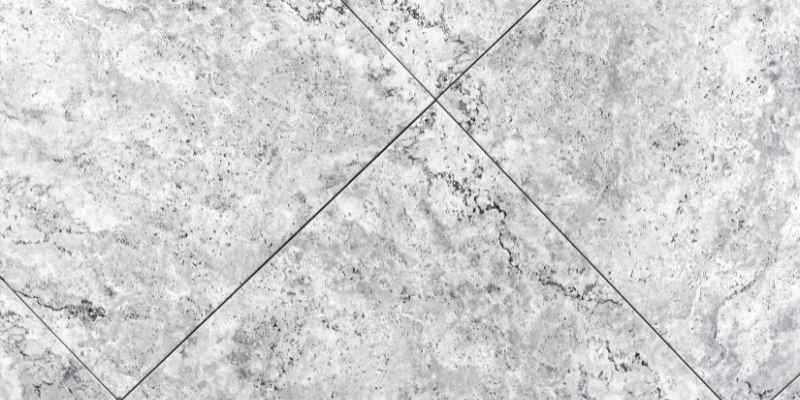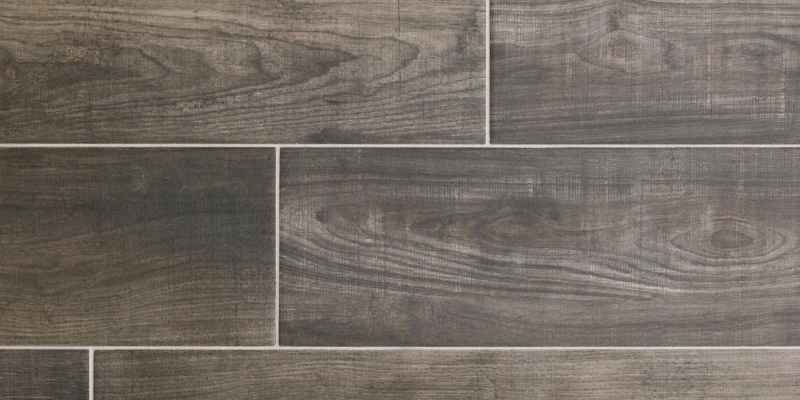Porcelain tiles are harder and denser than ceramic tiles, making them a better choice for high-traffic areas like kitchens and living spaces. Porcelain is also more durable and chip-resistant.
However, ceramic tiles are more affordable and easier to cut and install. When it comes to choosing the right type of tile for flooring, it’s important to consider durability, appearance, cost, and installation. Porcelain tiles offer unmatched durability and chip-resistance, making them ideal for high-traffic areas.
On the other hand, ceramic tiles are more affordable and easier to cut and install. We’ll dive deeper into the differences between porcelain and ceramic tiles, and help you choose the best option for your flooring needs. We’ll also explore the advantages and disadvantages of porcelain tiles, and provide tips for maintenance and cleaning.

Pros And Cons Of Porcelain And Ceramic Tiles
Porcelain and ceramic tiles have their pros and cons. Porcelain tiles are harder, denser, more durable and water-resistant, making them perfect for high-traffic areas like kitchens and living areas. However, they can be more expensive and tricky to install. On the other hand, ceramic tiles are softer, less expensive and easier to install, but they are less durable and more water-absorbent.
When it comes to deciding on the right type of tile for your flooring needs, it can be tough to know which factors to prioritize. Porcelain and ceramic are two of the most popular types of tiles on the market, each with its own set of advantages and disadvantages. In this article, we’ll explore the pros and cons of both porcelain and ceramic tiles, so you can make an informed decision for your next flooring project.
Advantages Of Porcelain Tiles
Porcelain tiles are a popular choice thanks to their durability. Made from a dense material that is highly resistant to scratches and impacts, these tiles are ideal for high-traffic areas of the home such as kitchens and hallways. They are also highly resistant to moisture and stains, making them a great option for bathrooms or other areas where water may be present. Additionally, porcelain tiles are available in a wide range of colors and styles, so you can select a look that fits your aesthetic preferences.
Disadvantages Of Porcelain Tiles
While porcelain tiles are largely seen as an excellent choice for flooring, there are some drawbacks to consider. For one, porcelain tiles are often more expensive than ceramic tiles, which could make them less attractive to homeowners on a tight budget. Additionally, the hardness of porcelain tiles can make them challenging to cut and install without specialized tools. Finally, despite their durability, porcelain tiles can still chip or crack if they are subjected to a strong impact.
Advantages Of Ceramic Tiles
Ceramic tiles are a popular choice for flooring thanks to their affordability and ease of installation. Ceramic tiles are typically less expensive than porcelain tiles, making them a great option for budget-conscious homeowners. Additionally, these tiles are relatively easy to cut and work with, which means you may be able to save money on installation costs if you opt for ceramic tiles. Finally, ceramic tiles are available in a wide variety of colors and styles, which can make them an excellent choice if you’re looking to match a specific design aesthetic.
Disadvantages Of Ceramic Tiles
While ceramic tiles offer numerous advantages, there are some factors to consider before making a final decision. For one, ceramic tiles are less durable than porcelain tiles and are more likely to chip or crack if subjected to heavy impacts. Additionally, ceramic tiles are more susceptible to moisture and stains than porcelain tiles, which means they may not be the best option for bathrooms or other areas where water is present. Finally, the softer material of ceramic tiles means they may be less suitable for high-traffic areas of the home, as they are more prone to wear and tear over time.
In conclusion, both porcelain and ceramic tiles offer a range of advantages and disadvantages that should be carefully considered when selecting the right material for your flooring project. Whether you prioritize durability, affordability, or design, weighing the pros and cons of each option will help you make the most informed decision possible.

Frequently Asked Questions For Flooring Porcelain Vs Ceramic
Is Porcelain Or Ceramic Tile Better For Floor?
Porcelain tile is better for floors, as it is denser and more durable than ceramic. Porcelain resists chips and scratches and is suitable for high traffic areas, making it ideal for floors. Additionally, porcelain offers greater stain and water resistance and is suitable for radiant in-floor heat.
While porcelain is more expensive than ceramic, it is more affordable than natural stone.
Which Is More Expensive Porcelain Or Ceramic Tile?
Porcelain is more expensive than ceramic tile. However, it’s more affordable than natural stone. Porcelain’s durability can make it difficult to install because it’s hard to cut through and requires specialty tools. Despite this, porcelain is a popular choice for bathroom floors because it offers greater stain and water resistance than ceramic and can be used with radiant in-floor heat.
What Are The Disadvantages Of Porcelain Floor Tiles?
Porcelain floor tiles have two disadvantages: a highly brittle surface and grout sealing. Although more expensive than ceramic, it is still more affordable than natural stone. Porcelain is suitable for high-traffic areas due to its density and hardness, but it requires specialty tools to cut.
Additionally, porcelain is a good choice for bathroom floors due to its water and stain resistance.
Is Porcelain Ok For Bathroom Floor?
Yes, porcelain tile is suitable for bathroom floors. It is a durable and less porous option that offers greater water and stain resistance than ceramic tiles. Porcelain tiles are also suitable for radiant in-floor heating, making them the perfect choice for bathroom floors.
Conclusion
Overall, when it comes to choosing between porcelain and ceramic tiles for your flooring needs, there are a variety of factors to consider. While porcelain is the denser and more durable option, it can be more expensive and trickier to install.
Ceramic, on the other hand, may be more comfortable to walk on and easier to cut, but may not be as durable. Ultimately, it is important to weigh the pros and cons of each option and choose the one that best suits your specific needs and preferences.


